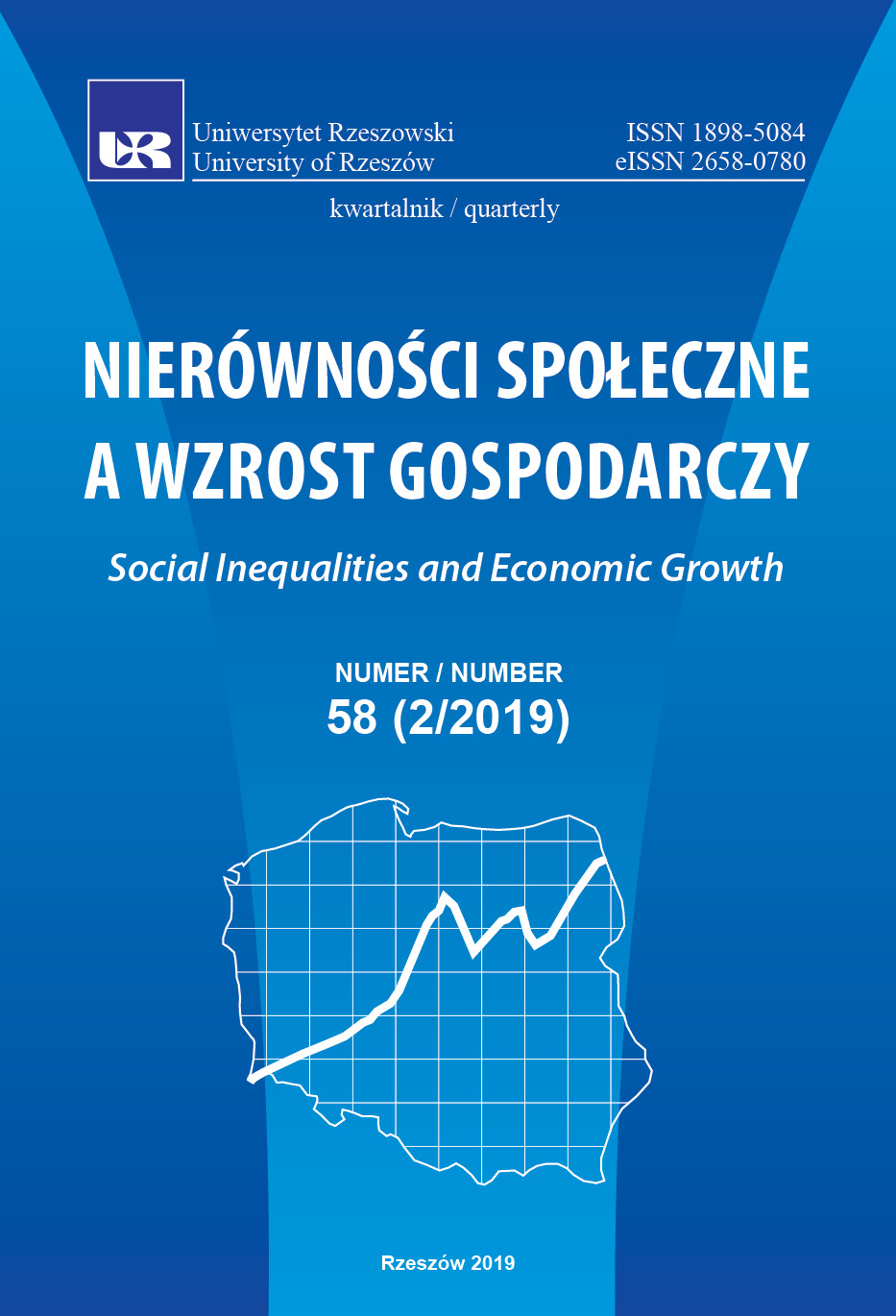Employees-organization matching as a factor of using human capital for integrated development
DOI:
https://doi.org/10.15584/nsawg.2019.2.6Keywords:
employee-organization matching, interactive matching, human capital, integrated developmentAbstract
The changes of the modern organization functioning are increasingly focused on using, apart from traditional, also institutional factors of development (internal-organizational and individual). However, institutional solutions have not been sufficiently rooted in fundamental human values, in particular regarding the subjectivity standard as to mutual respect of the needs, capabilities and expectations of employees and organizations. The analysis of the employee-organization match reveals a significant imbalance in this area. This mismatching is a manifestation of a lack of social and economic cohesion and it hinders the harmonious use of human capital to ensure integrated socio-economic development. The subject of the paper is the issue of harmonizing the employee-organization matching in contemporary human capital management. The assumption was made that multidimensional coupling of economic activities’ effectiveness with the sphere of matching in terms of the needs and resources between employees and the organizations employing them is significant for building the policy of social and economic cohesion. The study systematizes the diversity of theoretical approaches characterizing the process of employee-organization matching in the literature. Against this background, the evolution of the concept of employee-organization matching was presented, and three key types of concepts were distinguished, including the concepts of employee adaptation, occupational adaptation and interactive matching. They were presented taking into account the main determinants adopted in individual matching models. The results of the employee-organization interactive matching were presented both for the employee and for the organization in the context of integrated development. It was shown that the holistic recognition of human capital made in an atmosphere of subjectivity, the practical manifestation of which is the mutual reckoning with the needs and possibilities on both sides of the matching relationship, is an important social stimulus of integrated development.Downloads
Download data is not yet available.
Downloads
Published
2020-11-13
How to Cite
Adamska-Chudzińska, M., & Huculak, M. (2020). Employees-organization matching as a factor of using human capital for integrated development. Social Inequalities and Economic Growth, 2(58), 92–104. https://doi.org/10.15584/nsawg.2019.2.6
Issue
Section
Articles
License
Copyright (c) 2019 University of Rzeszow

This work is licensed under a Creative Commons Attribution-ShareAlike 4.0 International License.


